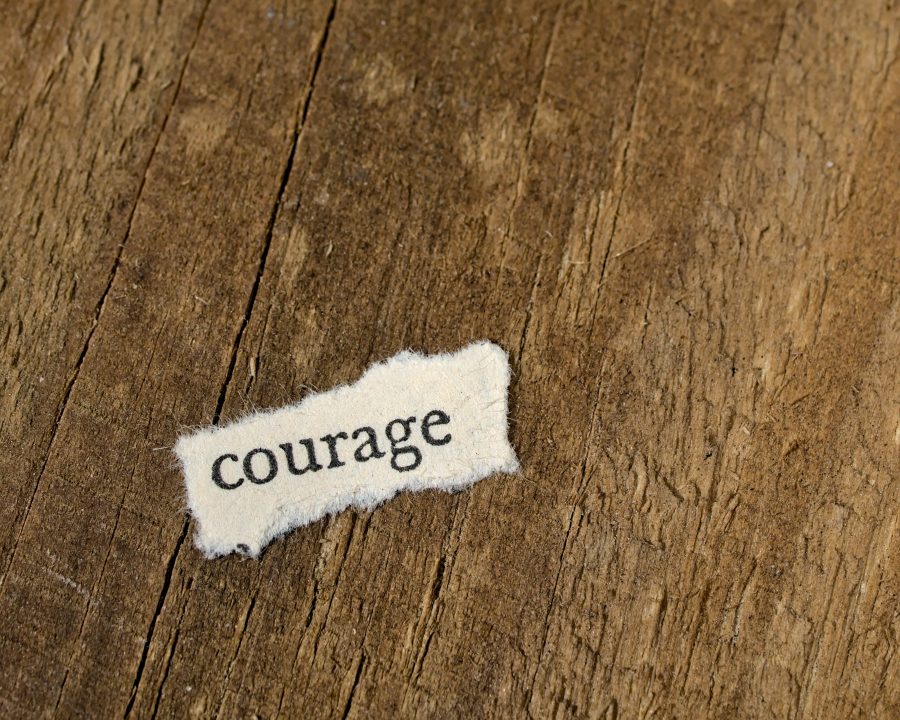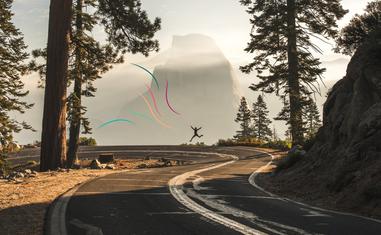The views expressed in our content reflect individual perspectives and do not represent the authoritative views of the Baha'i Faith.
Like me, you’ve probably wondered – what makes someone heroic? Human beings can rise to such elevated spiritual planes – but how do they get there? What compels someone to act heroically?
We all admire real heroes. Everyone has role models in life, people with qualities and attributes they respect and revere. So let’s explore that phenomena, and see if we can figure out how to recognize a hero and lead a heroic life.
RELATED: A Lesson in Courage: Confronting Racism with My Father
The Definition of a Hero
Because I’m a recovering former university English teacher, one who tried to train my students to think clearly by accurately using words, when I began pondering this fascinating subject of heroism I first went to my tattered Webster’s Unabridged Dictionary to look up the definition:
heˑro n. 1. a man of distinguished courage or ability, admired for his brave deeds and noble qualities 2. a person who, in the opinion of others, has heroic qualities or has performed a heroic act and is regarded as a model or ideal
Can’t a hero be a woman? Sure, but in English the almost archaic word heroine fulfills that role:
herˑoˑine n. 1. a woman of heroic character, female hero
Which seems quite strange, because originally Hero was a woman – a priestess of Aphrodite, the goddess of love and beauty in Greek mythology. Hero sacrificed her life by flinging herself into the ocean after her lover Leander drowned while trying to swim the Hellespont (now called the Dardanelles – the strait between Europe and Asian Turkey) when he was overcome by the desire to visit his beloved Hero.
Anyway, let’s just agree to use the word hero and apply it to anyone of any gender who does something heroic.
For Baha’is, a hero describes a person whose being is fully dedicated, as Abdu’l-Baha put it in a speech he gave in 1912, to “the susceptibilities of the spirit:”
How powerful the spirit of man, while his body is so weak! If the susceptibilities of the spirit control him, there is no created being more heroic, more undaunted than man; but if physical forces dominate, you cannot find a more cowardly or fearful object because the body is so weak and incapable. Therefore, it is divinely intended that the spiritual susceptibilities of man should gain precedence and overrule his physical forces.
What a stirring description: “… no created being more heroic”! After pondering these important definitions and their origins, I felt moved to write a series of essays about true heroism, exploring the inner qualities that make such admirable people so remarkable.
We’ll start this way: do you know any heroes? Try to think about that question as you read these essays – and perhaps also consider whether you might fit the definition, whether you yourself have ever done anything heroic.
What Makes a Hero Heroic?
When we ponder what it takes to do something heroic, we often think first of physical courage – in war, amidst disaster or crisis, even in the movies. A car catches fire, people are trapped inside, and bystanders react by risking their own lives to save them. A heroic soldier rescues a wounded buddy, exposing himself to hostile fire. A movie hero saves the world with superhuman powers.

These physical manifestations and depictions of heroism usually involve three things: a split-second decision, disregard for the hero’s own safety, and a quick, successful conclusion. The military gives medals for this kind of heroism, but anyone who has ever seen it occur, or taken part in it, knows that the rapid decision to act often comes from pure gut instinct, not conscious self-sacrifice or altruism.
That’s probably why most of the people we perceive as heroic – the woman who jumps into a river to save a child about to be swept away, for example – don’t think of themselves as heroes at all. When you see such people labeled as heroic later, they almost always respond by saying “I’m no hero – I did what anyone would do.” It may seem like they’re just being modest, but that’s not the case – they’re simply reviewing the unconscious snap decision they made and accurately recognizing it for what it was, an instinctive response they had little control over.
RELATED: The Dawn-Breakers Challenge: the History of Baha’i Heroes
True heroes, it seems to me, go beyond those kinds of impulsive, instinctual, unthinking acts. Instead, they make conscious decisions to sacrifice themselves for the good of others and then follow through, over time, with those decisions, dedicating their lives to something greater than their individual advantage.
Defined this way, true heroism means putting others first, even at your own peril. True heroism means dedicating your life to a noble cause. True heroism means, through willpower and strength, sacrificing our lives for an ideal. When you act in a truly heroic way, you attempt to incorporate that higher ideal into your very being, and you aspire to exemplify that ideal in your daily actions over the long term. You make a commitment of the spirit and stick by it, no matter the obstacles.
That may be one of the reasons why the Baha’i teachings focus more on deeds than on thoughts or words. Baha’u’llah, the prophet and founder of the Baha’i Faith, wrote these four passages on the subject in different places in his writings:
O people! Words must be supported by deeds, for deeds are the true test of words. Without the former, the latter can never quench the thirst of the yearning soul, nor unlock the portals of vision before the eyes of the blind. … The latter leadeth the children of men unto knowledge and conferreth upon them true distinction.
Let your acts be a guide unto all mankind, for the professions of most men, be they high or low, differ from their conduct. It is through your deeds that ye can distinguish yourselves from others. Through them the brightness of your light can be shed upon the whole earth.
All that are on earth shall pass away, while good deeds alone shall endure; to the truth of My words God doth Himself bear witness.
Guidance hath ever been given by words, and now it is given by deeds. Every one must show forth deeds that are pure and holy, for words are the property of all alike, whereas such deeds as these belong only to Our loved ones. Strive then with heart and soul to distinguish yourselves by your deeds.
We can all aspire to this kind of spiritual heroism exemplified by action. In the next essay in this series, we’ll examine the kinds of things that do not constitute heroism.

















Comments
Sign in or create an account
Continue with Facebookor